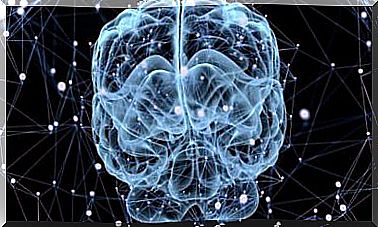Growth Mindset: It Is Not What You Are, But What You Can Become

Beyond what you are or what others have said about you, there is what you can become and demonstrate to the world with your potential and determination. Because by applying a growth mindset you break the molds and conditions to move forward with greater confidence and optimism. Few strategies can help you so much to promote positive change to achieve wellness.
Some say that people, like any organization, are characterized by two different approaches. On the one hand there are those who apply the growth mindset and those who, on the other hand, make use of a fixed mindset. When the first dimension defines us, we constitute ourselves as entities that trust that their talent can improve and develop further. It is awakening your own potential through work, perseverance and innovation to achieve success or well-being.
Against him, we have a fairly common dynamic; the one where one understands “that you already have everything you need.” By applying this perspective, this fixed mindset, they avoid any attempt at change or improvement. They close the doors to the challenge, by going further, since they prefer to remain on firm and safe ground, feeding the same guidelines, the same obsolete strategies. Thus, and as curious as it may seem, this last ruse is applied daily by many of us and, without a doubt, by countless companies.
Thus, when we least expect it, that voice appears in our mind that tells us that of: “ don’t change, don’t do anything, better stay where you are. You are already intelligent or your company is already well positioned in the market, why risk then? ”… If this internal dialogue is familiar to you, it is time to discover how it can benefit us to make use of the authentic approach to personal development: the growth mindset .

Growth mindset: beyond being is potential
We all know that our minds have the ability to directly influence our lives. We are what we think and what our thoughts make us feel. Furthermore, what truly influences our reality is what we think about ourselves; in fact, there is the real key to everything.
The latter is precisely what Stanford University’s Dr. Carol Dweck, one of the most renowned researchers in the field of personality and social psychology, could see and who coined the term “growth mindset.”
After an investigation that lasted more than 30 years and that was published in the MindsetWorks space, Dr. Dweck demonstrated that what students think about themselves directly affects their performance. This idea that we can all agree on has important nuances that need to be understood.
- If a student is praised solely for his abilities or intelligence, he will not always take on personal challenges or challenges. The reason? They will fear not being up to the task at some point and will prefer to stay in their comfort zone, the one where they play it safe by reinforcing their own skills already acquired. It is not enough, therefore, to tell a child “but how smart you are.” There is something more important.
- Now, if we praise a student for the effort they make, instill in them the value of work and make them see their achievements and progress, they will have a very positive image of themselves. For example, you will not be afraid to try new tasks or take on challenges, because these are a way to challenge yourself and see how far you can go.

The mindset that we instill in our children and adolescents will be directly reflected in their performance. This is the conclusion reached by Dr. Carol Dweck in her meticulous study and which was later reflected in the 2007 Stanford Report.
You are more than you think: the need to apply the growth mindset
People are used to labels. There are those who have ADHD (Attention Deficit Hyperactivity Disorder) others depression or anxiety, others are introverted, overly sensitive, some lonely, there are some denied for mathematics, others obsessive and some even incredibly intelligent.
When someone tells us what we are, either as a simple comment or as a result of a clinical test, there are those who say “ well, that’s it, this is who I am and this is how I am going to act ”. This is something that we see, for example, on a regular basis in classrooms: many children are conditioned by what adults say about them. No one has taught them (and neither have we) to approach things differently.
Applying the growth mindset is saying “okay, the symptoms are there. I’m more nervous than usual, or very smart or clumsy at math, or prone to depression, of course. However, a label does not define what I am. My behavior defines me, so if I start to think differently, I can improve my reality and make things change for the better ”.

Dr. Carol Dweck proposes in her well-known book “Mindset: the attitude of success” that we learn to apply the following strategies in our day to day to promote that growth mentality:
- Understand that everyone can enter the world with certain abilities. Yet true talent is made, practiced, and worked on daily.
- Take on new challenges, challenge yourself daily.
- Take a positive approach.
- Value the criticisms that are useful, the ones that help you grow. Ignore the others.
- Have discipline, perseverance and openness. Success is not accidental, all success or all change implies work, persistence and self-confidence.
To conclude, the growth mindset certainly requires that we accept ourselves but, in turn, that we be able to see ourselves not as fixed and realized entities, but as change-oriented people. The human being, by himself, is change and movement, he is evolution, openness and continuous learning.
Let us move, therefore, with that mind ready and ready for challenge and constant growth.









